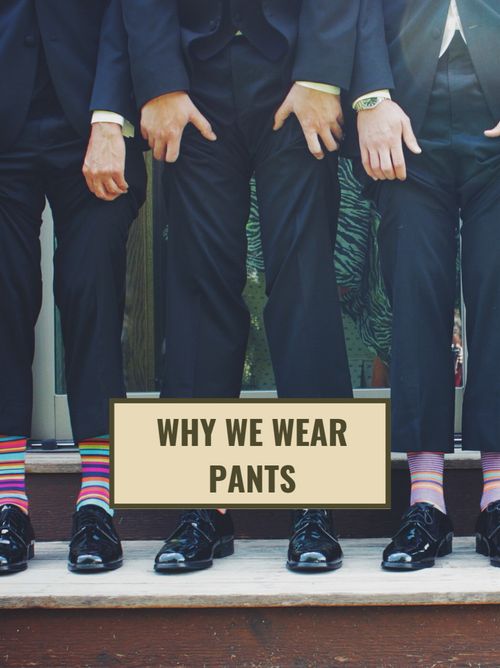Why do we all wear pants? An answer from evolutionary theory
Nov 21, 2021 · 2 mins read
0
Share

No other piece of clothing is as common as pants. From young to old, men to women, easterners to westerners, everyone wears pants. Pants are common even in places and seasons when better options are available. Using evolutionary theory, Peter Turchin explains why👇
Save
Share
The puzzle. Turchin writes: "In warm climates or during summers in the temperate zone the kilt is much more comfortable to wear than the jeans." He notes other alternatives: "a robe, a tunic, a sarong, or a toga." When did pants become the dominant bottom wear?
Save
Share
How did the Greeks and Romans cover themselves? The ancients associated pants with the barbarians. Turchin notes how in the Mediterranean region 2000 years ago, "none of the civilized people (notably the Greeks and the Romans, but also Phoenicians and Egyptians) wore pants."
Save
Share
And yet a thousand years later, pants were common. What happened? Turchin's answer: horses. Pants are the most convenient bottom wear if you want to climb on, descend from, or ride on horses. Horses became prominent in warfare, and societies that didn't wear pants got trounced.
Save
Share
Turchin writes: "Riding a horse while wearing a tunic is not very comfortable. So Roman cavalrymen started wearing pants." When "wearing pants became associated with high-status men," the rest of society started aping the trend.
Save
Share
In Japan, the warrior class, the Samurai, wore "baggy pants." When American Indians "started riding horses they also adopted pants." This evidence, while strong, is "circumstantial." Turchin goes on to provide "direct evidence." 👇
Save
Share
When the Hunnu barbarians arrived on Chinese soil, they came on horsebacks wearing pants. Turchin writes: "The Chinese at the time wore robes, which made them very inefficient riders." Military defeats started piling up.
Save
Share
Emperor Wuling tried to lead by example. He wore pants before mounting horses. This didn't go well. His ministers complained: "That is not how to instruct the people and perfect the rules of propriety. Moreover he who puts on strange attire has a dissolute will."
Save
Share
This proves "how difficult it is to go against the cultural inertia." But in a war, the culture that is more ready to adapt will beat the culture that isn't. This shows that evolutionary pressures apply to groups as much as they do to individuals.
Save
Share
Bottom line. Turchin shows that innocuous questions like why does everyone wear pants can have deep and complex answers, and brings to mind a classroom truism: there are no stupid questions. Pants suited horse-riding, which suited ancient warfare, and the habit never left us.
Save
Share
0